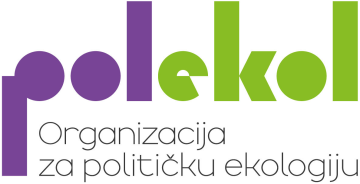The fight for nature is a fight against extractivism
The Women’s Network for Nature and Environmental Protection held its sixth meeting this year in Homolje from 1-3. November. We chose this location in accordance with the current practice of the Women’s Network, which is gathering and supporting places where environmental struggles are being waged. A gold mine by the Canadian company Dundee is planned in this area, and in the spirit of civil resistance to such harmful projects throughout Serbia, the topic of the meeting was extractivism, that is, the exploitation of nature and society.
Miroslava Nikolić from Polekol addressed the participants in front of the organizing team and opened the meeting with the words that unlike extractivism, which is a violent process against nature and people, the Network of Women in the Ecological Movement is a safe place and a safe space for solidarity, tolerance, understanding and cooperation.
This was followed by an introductory lecture by Iskra Krstić (journalist and activist of the Right to Water initiative): “For a handful of dollars: Introduction to extractivism” , which through concrete measurements from the local area and from our environment, brought this concept closer to the participants and answered the question of what it is that determines whether we call something extractivism.
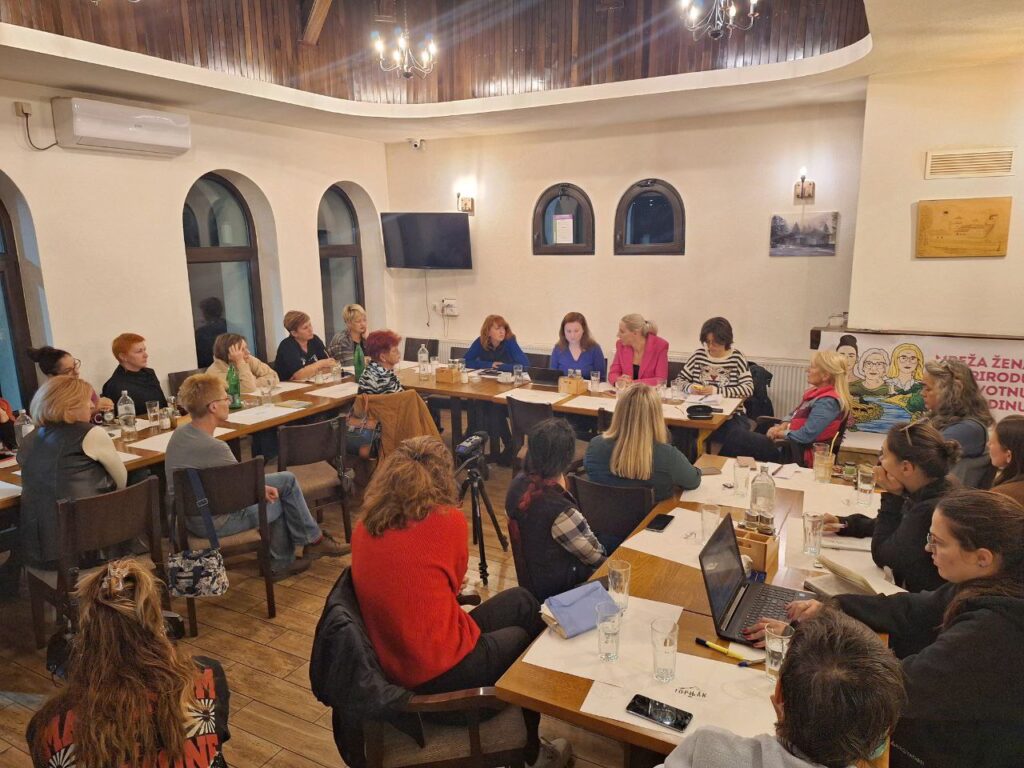
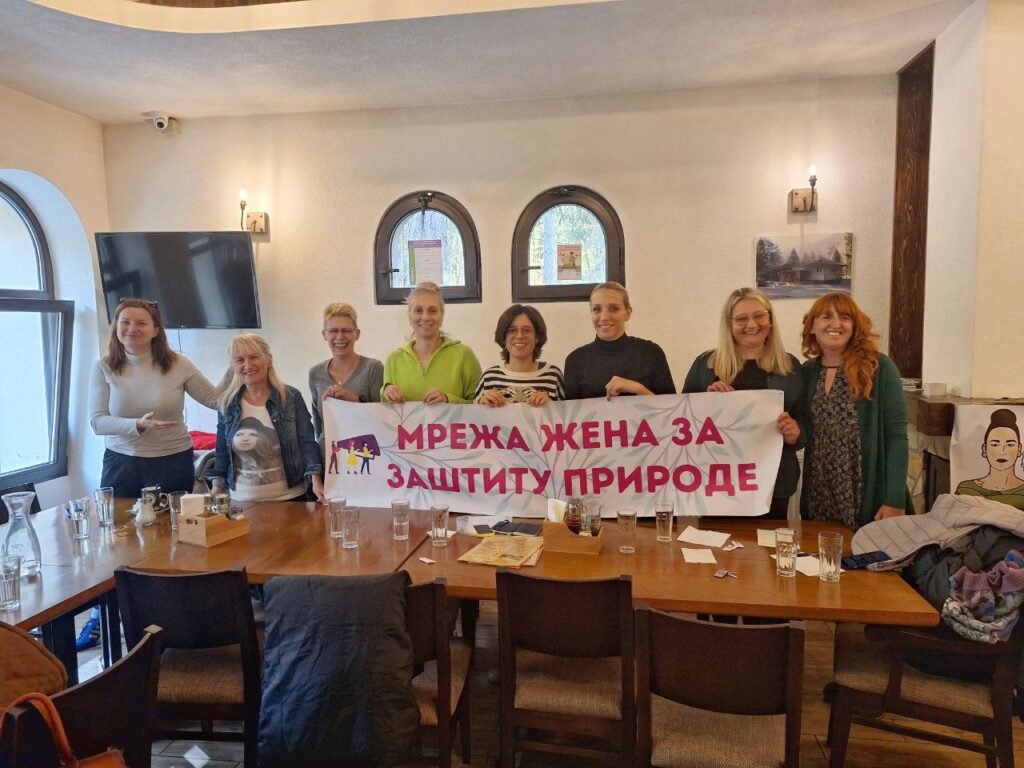
We learned that extractivism is an economic model of exporting natural goods from countries that are rich in them to more industrially developed countries that process them, whose profits are significantly higher than in the exporting country, and the environmental damage is many times smaller. Extractivism is also an ideology that advocates that this kind of economic model is beneficial for both parties. In practice, it is the exploitation of poor countries and regions of the global south (which is a new name for developing countries, so-called third world countries, former colonies) by militarily and politically more powerful countries of the global north (former colonizers, developed countries). Many politicians and economists claim that the export of raw materials stimulates the economic development of countries that did not enter modernization and industrialization “on time”. Decades of research show that those countries that tried to develop by exporting raw materials did not succeed, but continued to fall further behind developed countries, because the global economy is set up in such a way that the trading conditions for those countries are unfavorable. Colonial relations, which were once based on military occupations, are now maintained through unequal international treaties and economic inequalities. The Global North returns 30 times less money to the Global South than it earns from it, and that money is returned to them mostly in the form of donations and projects. Economists have calculated that with 10 trillion dollars, which the global South gives to the North annually, extreme poverty could be ended 70 times. Although Serbia belongs to the global north in terms of income, the way in which the development of its economy is planned is bringing it closer and closer to the global south.
The economy also knows the so-called “curse of resources” which, for other reasons, affects the economies of countries that rely on the extensive export of one good. As a rule, their economy adapts to that branch, while the development of other branches is neglected, which over time brings even more harm than good, because the projects and raw materials themselves do not last forever, and leave long-term environmental damage. If we take domestic examples of planned mines: the gold mine in Homolje would work for 8-10 years, after the mine’s closure, the local community will be left with an economic and ecological wasteland, this speaks in favor of the thesis that such mining projects are not economically justified.
The second day began with a conversation with activists from the local community who drew the participants’ attention to the pressures they all face, and then, together with members of the organizations RIS-Rangers of Eastern Serbia and Cuvari Homolja, they took the gathered on a field visit to the Čoka Rakita hill. At this location, the Canadian company Dundee has been conducting research in search of gold ore since 2006. According to the locals, they used to do it discreetly, so the local population did not notice, nor were they worried. Now, there are over 1,000 exploratory wells in this area, and many have entered the property, polluting the land and water sources. Although the opening of the mine is planned for 2028, noise pollution, damage to plant cover and the disappearance of birds are already noticeable. Right from the place where the mine is planned, a look into the distance reveals another potentially disastrous project for Homolje – the planned wind park of the Chinese company PowerChina, which will destroy thousands of hectares and forests on Crni Vrh.
After visiting Čok Rakita, members of the network planted bulbs on the property of Slavica Mošić, an activist of the organization Čuvari Homolje, as a symbolic act of nature conservation, and tasted Homolje products, which the locals say are the only real gold of this region.
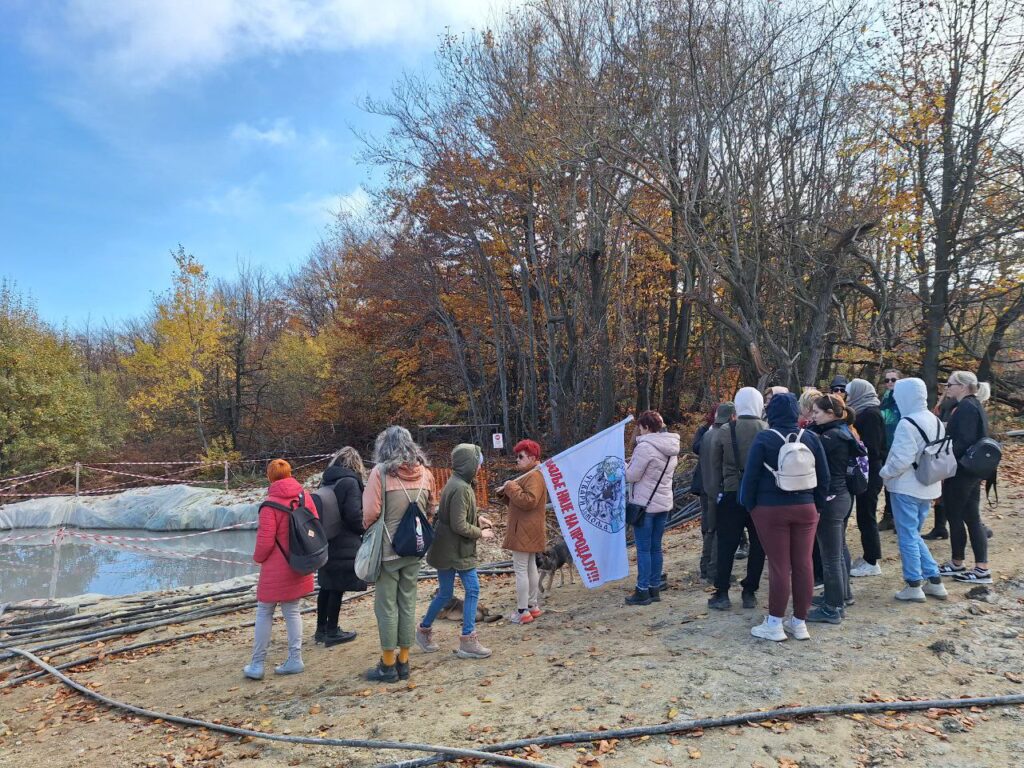

In the afternoon, Iva Marković (program director of Polekol) held a lecture “Extractivism and Nature” . At the very beginning, she explained the difference between extractivism and extraction. Extractivism is an ideology , when someone takes the raw materials they need, without any responsibility for the state that remains during and after extraction. Extraction is a process that takes place when raw materials are taken from the premises and taken further for processing and use, and thus the profit is realized elsewhere.
An interesting observation is that extractivism can also be applied to knowledge. When our society invests in education and young people who are educated at state colleges, and then after their studies they go to work for foreign companies that see them as highly educated cheap labor.
The law of nature is a concept that strikes ideologically against the idea of extractivism. It is not only a matter of legal legality, but it overturns the idea that nature is an object that has no value except to insert it into the economic system. If we consider the approach the same as citizens, as an entity that does not have an identity, but has its own rights, we also give it rights in the legal system. Bolivia, which adopted the law on the rights of Mother Earth in 2010, as well as Ecuador, which has this right in its Constitution, was cited as an example.
During the discussion, the participants pointed out that extractivism seriously threatens nature, especially through activities that do not allow nature to renew itself. This is precisely why local communities that defend their land against mining projects are not an obstacle to development, but rather a solution. Those who oppose the exploitation of resources are the legitimate representatives of nature and its true messengers.
Citing personal examples, the women talked about extractivism from the aspect of forest exploitation. The forest is not valorized from the point of view of other values, except those of production, and forests also have ecological, social, climatic, and other values. If ecosystem services calculus is going to help save the forest, it should be used. But for people to defend the forest, they must first come and build a relationship with the forest, to understand it.
Capitalism is characterized by endless growth and progress that must be reflected in the material. Growing up is on the long side the idea that our growth is sustainable, not only for the sake of natural goods, but also for the sake of our own well-being, the philosophy of rational consumption, and ecosystem conditions in which growth is seen as development, not as reckless economic growth.
Issues of progress, development, growth – are different things, and in the current system they are completely equal.
On the last day of the meeting, environmental problems were mapped and topics were selected that the Women’s Network will deal with in the near future. Then we moved on to the selection and voting for the new Committee of the Women’s Network for the Protection of Nature and the Environment. In a positive working atmosphere, the members wished the new Committee good luck and success in its work.
The meeting ended with the traditional exchange of second-hand clothes under the name “Sustainability in women’s practice”, which represents the application of the philosophy of growing up in action.
At the end of the meeting, the members of the Women’s Network for the Protection of Nature and the Environment concluded that extractivism has crept into all the most important economic branches of Serbia, and that is why it is even more important to fight for every square meter of nature. They stated that nature is viewed as a resource waiting to be used, instead of a public good that should be fairly distributed and available to everyone, that although the fight is hard, there are no small environmental victories, and that each one counts and can serve as an inspiration for other defenders of nature.
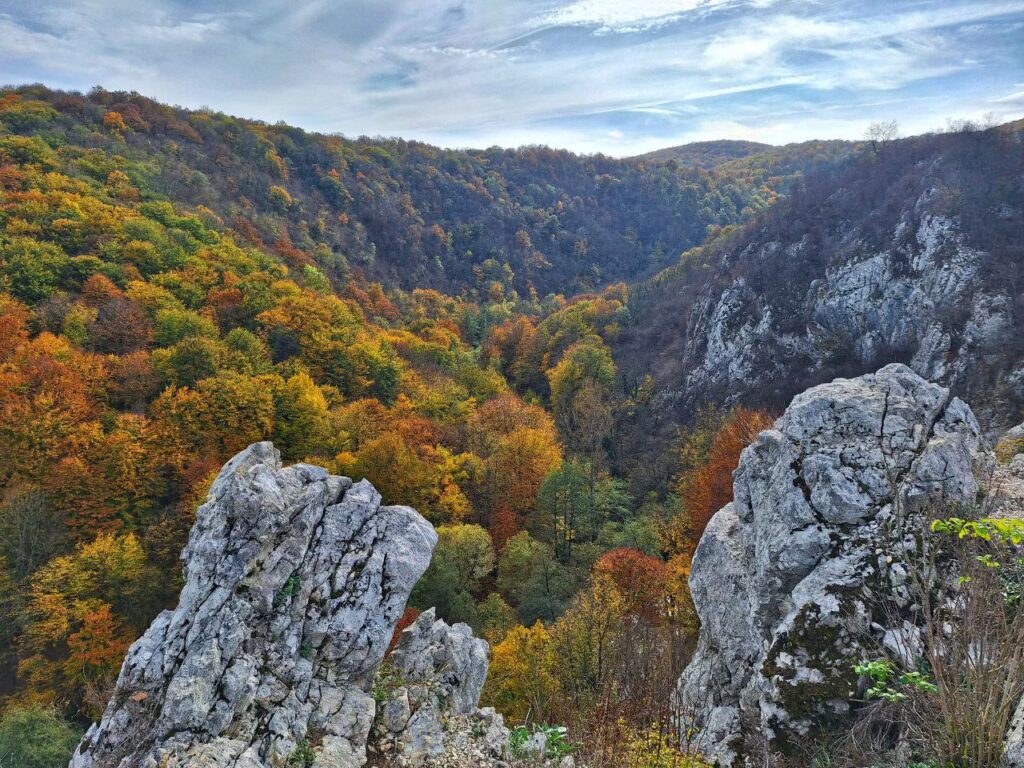
The activities are part of the “Union of Women” project supported through the ECO-SYSTEM program to support reforms in the environment, implemented by the Young Researchers of Serbia (MIS), and supported by Sweden.
